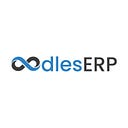Python for an ERP software development
ERP is an integrated system that provides a well-organized picture of organisational responsibilities. 94% of firms say that employing ERP systems has improved their data security, according to a Statista survey. Oodles ERP is a specialised custom ERP development firm whose mission is to provide businesses with reliable, enterprise-wide ERP software.
Many people think that Python is a fantastic language for prototyping, but in my opinion, its greatest asset is that it allows one to specialise in business logic programming rather than a technical one, which is sometimes needed to design an ERP system. It is a language that helps programmers avoid getting bogged down in the linguistic nuances and instead concentrate on solving business challenges.
Although Python is thought to be slower than Java or C, it isn’t that slow for a programming language used for business logic. The primary bottleneck is the delay to retrieve data from a database, not Python, since an ERP system typically uses a database as a backend. Therefore, in this instance, one wouldn’t even notice the difference in overall performance between Python and other languages, like Java.
The foundation of the new Django ERP paradigm is fourfold:
- Contemporary technology.
- Accessible content and responsive design.
- Elegant in appearance, feel, and functionality.
- Open in terms of functional extensibility and ASCII text file policy.
Django The most effective technique to develop the backend is using Flask or Python. You get more done if you use Wagtail in addition to Django. ERP requires a large number of models, so it will be quite beneficial to use something that speeds up the model-building process. An ERP’s database is its biggest performance constraint. Therefore, using a slower language like Python is not an issue because the speed difference is negligible.
However, because small businesses have limited resources, ERP occasionally needs to operate on subpar servers. Currently, the web framework “Genie” by Julia offers a superior productivity to performance ratio. It is more performant than Go, yet it is comparable to Django. We create a unique user interface (UI) that facilitates user adoption and prioritises increasing user productivity in accordance with the main needs of ERP productivity and user-friendliness. For the frontend, we employ Angular, React, or Vue.js to enable the designers to create visually engaging mockups.
Using a Single Page App framework for the frontend also has the benefit of significantly reducing the amount of code required to write a web user interface, a desktop version, and a mobile app because similar functionality can be reused. For ERPs, cross-platform development is essential.
Because Python, PHP, and other such languages are dynamic, people don’t usually utilise them. However, because Django ORM effectively maintains integrity at the database level, Django is a very promising framework for business and financial applications. It is designed for the typical relational data that the majority of ERPs use. Thus, I had little trouble integrating effective ERP or ERP-like solutions with Django.
A language like Java would undoubtedly provide a foothold for enterprise-level huge systems on the magnitude of SAP / Oracle EBS. This is mostly because several language characteristics would make it possible to implement several design patterns more effectively (even if we will also implement nearly every design pattern in Python).
Strict OOP languages like Java and C# might be a lot better option, but Django works well for medium-sized corporate apps. Django is the most potent Python web framework, thus it makes sense to utilise it for ERP applications.
Does Python make sense as a language to use for ERP systems?
- Django Web ERP is typically faster than other Web-ERPs.
- Django is suitable for the market due to its less time/more work on the project.
- It is easier to use than Java to develop an ERP system.
- It uses Django ORM, which means, you don’t need to write complex queries (SQL) as they are implemented within the database.
- More development will be seen in Django in the near future as the Python community grows.
We are an ERP development company that creates ERP software on demand to meet corporate needs. We employ a broad technology stack including languages like Python, Java, Angular, and others to create user-friendly interfaces and efficient backends. To take advantage of our unique ERP development solutions, speak with our specialists.
